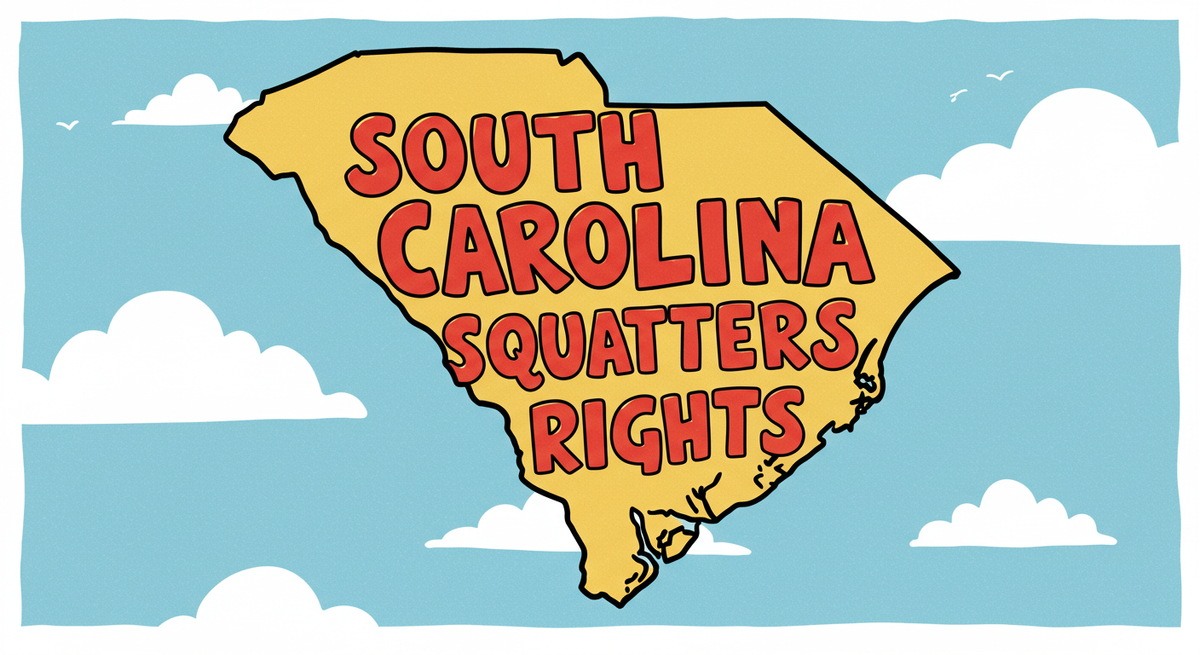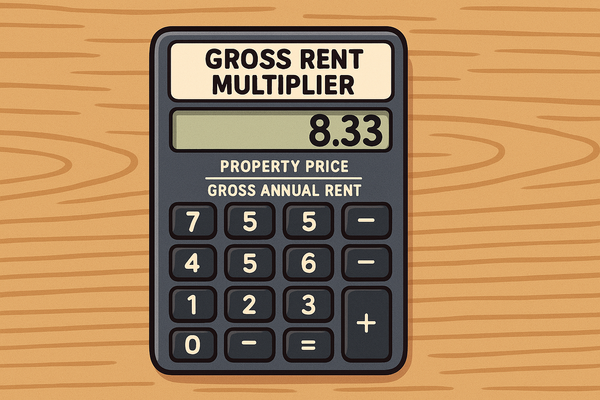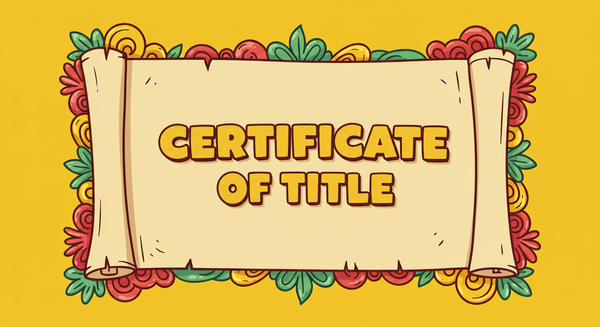South Carolina Squatters Rights Guide: Understanding Adverse Possession Laws
South Carolina recognizes adverse possession as a legal doctrine allowing squatters to gain legal title to property after 10 years of continuous occupation if specific legal requirements are met.

From an 11-month squatter battle over inherited properties to a fraudulent lease scheme involving vehicle theft and identity crimes, South Carolina property owners face real threats from unauthorized occupants.
With a 10-year adverse possession period and a legal system that some describe as "financially devastating" for rightful owners, understanding squatters' rights in South Carolina has never been more critical—especially as lawmakers consider abolishing the centuries-old adverse possession doctrine entirely through House Bill 5469.
Introduction to Squatters' Rights in South Carolina
- Definition of squatters vs. trespassers in South Carolina: In South Carolina, a squatter is someone who occupies a property without legal ownership or permission, while a trespasser is someone who enters property without permission but doesn't attempt to claim ownership rights.
- Basic overview of adverse possession in South Carolina: South Carolina recognizes adverse possession as a legal doctrine allowing squatters to gain legal title to property after 10 years of continuous occupation if specific legal requirements are met.
- Why property owners should understand these laws: Understanding South Carolina's squatters rights laws is essential for property owners to protect their property rights and prevent potential loss of ownership through adverse possession claims.
- Historical purpose of adverse possession laws: Adverse possession laws were historically designed to ensure productive use of land and resolve boundary disputes, though South Carolina is now considering abolishing this centuries-old legal doctrine.
Squatter Snippet: Real Case from South Carolina
In April 2024, property managers in Sumter, South Carolina discovered that their property had been broken into when they found the lock pried open. Inside, they encountered Karen Gail Smith (40) and Megan Brooke Williamson (36), who were living in the home with a 15-year-old juvenile. When confronted by police, the women confidently presented a fraudulent lease agreement.
Further investigation revealed that these squatters had not only illegally occupied the property but had also stolen a City of Sumter vehicle (attempting to conceal the theft by scratching off the VIN) and had been systematically stealing from a nearby animal rescue organization.
This is just one of many cases that highlight why understanding South Carolina's squatter laws is critical for property owners, as what began as simple trespassing evolved into an elaborate criminal enterprise.
Key Timeline: Statutory Period in South Carolina
- Required occupation period: 10 years in South Carolina
- Continuous possession requirement: Occupation must be without significant gaps
- Comparison with neighboring states:
- Timeline exceptions:
- Military service may pause the statutory period
- Heirs' property requires 20 years (double the standard period) for co-owners to claim adverse possession against other co-owners
CHART: Adverse Possession Timeline Comparison
| State | Required Years | Special Conditions |
|---|---|---|
| South Carolina | 10 years | Color of title may be required; property tax payment strengthens claim |
| Georgia | 20 years | Similar requirements for open, notorious possession |
| North Carolina | 20 years/30 years | 20 years with color of title; 30 years without |
| Florida | 7 years | Requires color of title and payment of property taxes |
Quick Guide for Property Owners
South Carolina property owners face significant challenges with squatters as demonstrated by the recent case in Sumter where squatters not only occupied a home unlawfully but engaged in extensive criminal activity including vehicle theft and identity theft.
Another shocking South Carolina case involved property owner Tammy Brinson, who spent 11 months and faced significant financial hardship trying to remove squatters from property she had inherited. Understanding South Carolina's specific 10-year adverse possession law is critical for property owners, especially as the state considers abolishing adverse possession entirely through House Bill 5469.
- Know your timeline: Squatters can claim rights after 10 years of continuous occupation in South Carolina
- Documentation matters: Keep property records, tax receipts, and inspection logs to prove ownership
- Regular monitoring required: Vacant properties are most vulnerable to squatters
- Legal obligation: Self-help eviction methods are illegal in South Carolina
- Act quickly: The longer squatters remain, the stronger their potential claim becomes
- Proper notices: Follow legal procedures when removing unauthorized occupants
Prevention: Protecting Your Property
In South Carolina, prevention is especially important given the state's relatively moderate 10-year adverse possession period. Court cases in South Carolina show particular attention to visible evidence of property monitoring and security measures when evaluating adverse possession claims.
According to property law experts in the state, the most common entry points for squatters in South Carolina include vacant homes, seasonal properties, and inherited real estate that sits unattended.
- Regular inspections:
- Visit property at least monthly
- Document each visit with photos/notes
- Effective security measures:
- Secure all entry points with quality locks
- Consider alarm systems connected to monitoring services
- Install motion-activated lighting around property perimeters
- Clear signage:
- Post "No Trespassing" signs visibly at property boundaries
- Mark property boundaries clearly to prevent encroachment
- Property management options:
- Hire professional property management for vacant properties
- Consider rental options for long-term vacancies instead of leaving property empty
- Documentation practices:
- Keep tax payment records as evidence of ownership
- Maintain utility connections even for vacant properties
- Take dated photographs regularly to show continued ownership interest
CHART: Property Risk Assessment Matrix
| Property Type | Risk Level | Recommended Prevention | Estimated Cost |
|---|---|---|---|
| Vacant Land | High | Regular visits, clear boundary markers, "No Trespassing" signs | $-$$ |
| Abandoned Building | Very High | Security system, regular inspections, property management | $$$-$$$$ |
| Seasonal Property | High | Property management, security system, neighbor alerts | $$-$$$ |
| Investment Property | Medium | Professional property management, tenant screening | $$-$$$ |
Removing Squatters: Step-by-Step Process
South Carolina law requires property owners to follow specific legal procedures when removing squatters, as outlined in South Carolina Code Title 15. Self-help methods like changing locks or shutting off utilities are strictly prohibited and can create legal liability for the property owner.
South Carolina's eviction process is generally more time-consuming than neighboring states, with documented cases taking up to 11 months for resolution. State statute §15-67-210 through §15-67-260 governs the possession and adverse possession process, with recent legislative efforts (House Bill 5469) potentially abolishing the doctrine entirely.
- Document the situation:
- Take photos/video of occupation
- Gather ownership documents including deed and tax records
- Issue proper written notice to vacate
- Different situations require different notices:
- 5-day notice to pay or quit (for nonpayment)
- 14-day notice to cure or quit (for lease violations)
- Immediate unconditional notice to quit (for illegal activity)
- Different situations require different notices:
- File appropriate legal complaint:
- File an eviction complaint (application for ejectment) with the South Carolina Circuit or Magistrate Court
- Include all required documentation proving ownership
- Attend court hearing
- Present evidence of lawful ownership
- The squatter has 10 days to respond to the rule by requesting a hearing
- If successful, obtain order of restitution/eviction
- If the court rules in the property owner's favor, a writ of ejectment will be issued within five days
- Sheriff enforces removal, not property owner
- The writ gives the squatter 24 hours to vacate the premises
- If they refuse, only a sheriff (not local police) has the authority to forcibly remove them
- What NOT to do:
- Do not change locks yourself
- Do not shut off utilities
- Do not remove squatter's belongings
- Do not threaten or intimidate
- Do not use physical force
- Timeline expectations:
- Notice period: 5-14 days depending on situation
- Court processing: 2-8 weeks
- Eviction enforcement: 1-5 days after judgment
CHART: Eviction Process Timeline
South Carolina's eviction process for removing squatters typically takes 30-90 days, though complex cases can take significantly longer. For example, Tammy Brinson's case in Berkeley County took 11 months to complete.
South Carolina Civil Procedure Code sets specific waiting periods between steps of the eviction process. According to data from the South Carolina Court Administration, the average processing time for ejectment cases has increased by 15% over the past five years, making prompt action by property owners even more critical.
[Discovery of Squatter] → [Documentation: 1-2 days] → [Notice to Vacate: 5-14 days] →
[Court Filing: 1 day] → [Waiting for Hearing: 2-8 weeks] → [Court Hearing: 1 day] →
[If successful, Wait for Order: 5 days] → [Sheriff Enforcement: 1-3 days] → [Property Returned]
Total estimated timeline: 1-3 months (30-90 days), with complex cases potentially taking much longer
Legal Requirements for Adverse Possession
South Carolina courts use the "OCEAN" criteria to evaluate adverse possession claims, with specific interpretations for each element based on South Carolina case law.
The burden of proof in South Carolina adverse possession cases rests with the squatter, who must demonstrate that all requirements have been met continuously for the full 10-year statutory period.
Key South Carolina cases have established that "hostile" possession doesn't require malicious intent but simply occupation without the legal owner's permission, and that payment of property taxes can strengthen an adverse possession claim even if not absolutely required.
- Hostile Claim
- Occupation must be without the legal owner's permission
- Can be established through "claim of right" or with color of title
- Does not require antagonistic behavior - simply unauthorized occupation
- Actual Possession
- Squatter must physically occupy the land
- Must use the property similar to how the true owner would
- Evidence includes maintenance and improvements
- Open and Notorious Possession
- Occupation must be visible to community and property owner
- Usage must be obvious enough that the true owner would be aware upon inspection
- Cannot be hidden or secretive
- Exclusive Possession
- Squatter must possess the property exclusively
- Cannot share control with the true owner or general public
- Must demonstrate sole usage and control
- Continuous Possession
- Full 10-year statutory period required in South Carolina
- Even short absences could potentially disrupt continuity
- Temporary vacations permitted, but longer gaps invalidate the claim
CHART: Adverse Possession Requirements Matrix
| Requirement | Required in South Carolina? | Evidence Courts Accept | Common Pitfalls |
|---|---|---|---|
| Hostile Claim | Yes | Unauthorized usage, claim of right, color of title | Having owner's permission invalidates claim |
| Actual Possession | Yes | Physical occupation, improvements, maintenance | Occasional visits insufficient |
| Open & Notorious | Yes | Visible occupation, community awareness, improvements | Hidden or secretive usage |
| Exclusive | Yes | Sole control, excluding others including owner | Sharing access with others |
| Continuous | Yes | 10 years uninterrupted possession | Significant gaps in occupation |
Frequently Asked Questions
- "Can I remove squatters myself?"
- No, self-help eviction is illegal in South Carolina
- Property owners who attempt to remove squatters themselves face potential legal liability
- "Do squatters have to pay property taxes?"
- Tax payment can strengthen an adverse possession claim
- Sources differ on whether this is mandatory in South Carolina
- "What's the difference between a squatter and a trespasser?"
- Trespassers: Short-term unauthorized presence without intent to claim ownership
- Squatters: Ongoing occupation with potential adverse possession claim
- "Who should I contact first - police or sheriff?"
- For immediate safety concerns: Police
- For eviction enforcement: Sheriff (only sheriff has jurisdiction to remove squatters)
- "Can squatters claim abandoned property?"
- Yes, if all adverse possession requirements are met over 10 years
- Abandonment may actually strengthen their claim
- "How quickly can I evict a squatter?"
- Typical timeline: 30-90 days
- Factors affecting timeline: court schedule, appeals, evidence quality, case complexity
- Complex cases can take significantly longer (11 months in documented Berkeley County case)
CHART: Decision Tree for Property Owners
South Carolina's specific laws regarding unauthorized occupants create a framework for property owner decision-making. Under South Carolina law (§16-11-600), criminal trespass is distinguished from civil squatting primarily by duration of occupation and intent to establish residence.
South Carolina law enforcement typically treats recent unauthorized entries (less than 24 hours) as potential criminal trespass, while longer-term occupation requires civil eviction procedures. This distinction significantly impacts how property owners should respond.
Discovered Someone on Your Property
├── Emergency/Dangerous Situation? → Yes → Call Police
│ └── No ↓
├── Recent Entry (Less than 24 hours)? → Yes → Call Police (Trespasser)
│ └── No ↓
├── Evidence of Established Occupation? → Yes → Legal Eviction Process Required
│ └── No ↓
└── Uncertain Situation → Consult Attorney Before Taking Action
Recent Legislative Changes in South Carolina
South Carolina's approach to adverse possession and squatters' rights is potentially undergoing a revolutionary change. House Bill 5469, introduced on April 24, 2024, aims to completely abolish the doctrine of adverse possession in South Carolina.
The bill would add Section 15-67-280 stating: "The statutory and common law doctrine of adverse possession as a method of obtaining title to real property by exercising continuous, open, actual, notorious, and exclusive possession of the property for a specified period of time is abolished."
It would also repeal Sections 15-67-210 through 15-67-260 and Article 3, Chapter 3, Title 15 of the South Carolina Code. This represents a dramatic shift from centuries of property law tradition.
- Recently Passed Laws:
- House Bill 5469: Introduced April 24, 2024, this bill aims to abolish adverse possession entirely
- Impact on property owners: Would eliminate the risk of losing property through adverse possession
- Effective date: Pending - bill is in House Judiciary Committee
- Pending Legislation:
- House Bill 5469: Currently in House Judiciary Committee
- Proposed changes: Complete elimination of adverse possession doctrine
- Expected vote/implementation: Unknown (still in committee as of introduction)
- Legislative Trends:
- South Carolina trending toward strengthening property owners' rights
- Property rights advocates pushing for faster eviction processes
- Some lawmakers advocating for criminalizing squatting
State-Specific Considerations
- Color of Title in South Carolina:
- Definition: Document that appears to give ownership but is legally defective
- Impact on statutory period: Sources differ on whether it's required or simply strengthens claim
- Documentation requirements: Must appear to be legitimate ownership document
- Burden of proof requirements:
- Squatter must prove all elements of adverse possession
- Evidence standards in South Carolina courts are substantial
- Difficult burden to meet for potential adverse possession claimants
- Recent legal developments:
- House Bill 5469 to abolish adverse possession
- Increased attention to squatter situations following high-profile cases
- Growing support for property owner protections
- How South Carolina differs from neighboring states:
- 10-year statutory period (shorter than Georgia's 20 years)
- Potential abolition of adverse possession would be unique
- Special 20-year requirement for heirs' property situations
CHART: South Carolina vs. Neighboring States Comparison
| Factor | South Carolina | Georgia | North Carolina | Florida |
|---|---|---|---|---|
| Statutory Period | 10 years | 20 years | 20/30 years | 7 years |
| Color of Title Impact | May be required | Reduces period | Reduces period | Required |
| Tax Payment Required | Strengthens claim | Yes | No | Yes |
| Special Conditions | 20 years for heirs' property | None | None | Tax payment mandatory |
| Strictness Rating | 3/5 | 4/5 | 4/5 | 3/5 |
Advanced Legal Process
- Court proceedings typically occur in South Carolina Circuit or Magistrate Courts
- Evidence requirements include deed documentation, tax records, and proof of ownership
- Potential outcomes include eviction of squatters or (rarely) recognition of adverse possession claim
- Monetary judgments possible for property damage or unpaid rent
- Impact on property title: adverse possession can permanently transfer ownership if successful
- Special provisions exist for legally incompetent individuals that may toll (pause) the statutory period
Real-World Examples
- The Sumter Squatters case (2024): Karen Smith and Megan Williamson presented fraudulent lease, engaged in property crimes
- Berkeley County Case (2023-2024): Tammy Brinson's 11-month legal battle to remove squatters from inherited rental properties
These cases demonstrate the challenges property owners face even when squatters have no legitimate claim.
Resources
- Current South Carolina Squatters Rights Laws:
- South Carolina Code Title 15, Chapter 67, Article 3 (Sections 15-67-210 through 15-67-260)
- Last updated: Prior to April 2024 (pending legislation may significantly change these)
- Recent/Pending Legislation:
- House Bill 5469: https://www.scstatehouse.gov/sess125_2023-2024/prever/5469_20240424.htm
- Bill status: In House Judiciary Committee
Legal Disclaimer
DISCLAIMER: The information provided in this guide is for general informational purposes only and should not be construed as legal advice on any subject matter. The content contained herein does not establish an attorney-client relationship.
This guide about South Carolina squatters' rights and adverse possession laws is intended to provide general information and should not be relied upon as legal advice. Laws and regulations regarding property rights, adverse possession, and eviction procedures vary by jurisdiction and may change over time. The information presented here may not reflect the most current legal developments or address your specific situation.
No reader should act or refrain from acting based on information in this guide without first seeking professional legal advice. Property owners dealing with squatters should consult with a qualified attorney licensed to practice in their jurisdiction for advice tailored to their particular circumstances.
The authors, publishers, and distributors of this guide expressly disclaim all liability in respect to actions taken or not taken based on any or all of the contents of this document. They shall not be responsible for any errors or omissions in this information or any consequences arising from its use.
This guide is provided "as is" without warranty of any kind, either express or implied, including but not limited to implied warranties of merchantability, fitness for a particular purpose, or non-infringement.
Copyright © 2025 LandlordDoc.com. All rights reserved.





